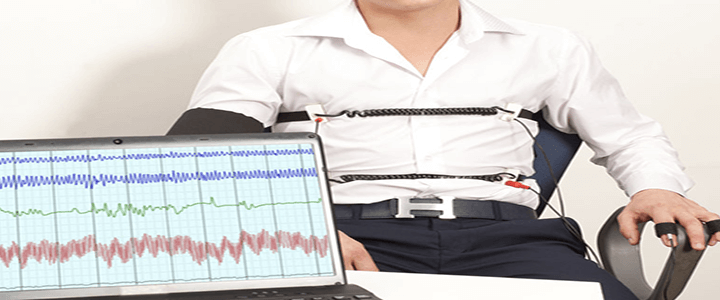Over the years, I’ve had the opportunity to see innumerable cases of polygraph examinations gone wrong. Many – if not the majority – of these cases share similar, entirely avoidable mistakes on the part of the examinee. The process of taking a polygraph is stressful and nerve-wracking by design, but here are four critical things to understand before you ever set foot in an examination room.
1. YOU ARE YOUR OWN BEST (AND WORST) ADVOCATE
If you think lawyers are sharks, wait until you meet your polygraph examiner. Some of these people are perfectly reasonable, but many are just looking for the next big “get” in terms of an examinee admitting to major misconduct. We’ve heard rumors over the years that polygraphers at certain agencies in the intelligence community are actually rated or rewarded on the number of damaging admissions they extract from examinees. Of course, rumors are nothing more than that; but I’d venture a guess that there is at least a sliver of truth here given some of the overly aggressive behavior I’ve witnessed.
One common trick that examiners use is to accuse someone of committing major criminal activity in an effort to see if the examinee will admit to lesser misconduct as a way of rebutting baseless allegations. Don’t sit idly by while accusations of misconduct are hurled in an attempt to get your mind churning, and don’t give non-verbal responses like shrugging your shoulders that can be misconstrued. Instead, push back on such efforts, be confident in your good character, and don’t “hedge” or “give a little” on factually false allegations in an effort to get the examiner to back off. Polygraph examinations are perhaps best analogous to the children’s book, “If you Give a Mouse a Cookie,” wherein each time the mouse is given something, he demands more. If the honest answer to a particular question is not what the examiner purports to want, keep pressing it anyway and don’t relent – even for a crumb.
2. SPECULATING OR OVER-VOLUNTEERING ONLY HURTS YOU
Many well-meaning examinees get themselves into trouble by needlessly speculating about answers to questions or over-volunteering information that wasn’t specifically requested. Your polygraph examiner is not your friend and, much like with the police, anything you give them can – and often will – be used against you. Clear, concise “yes” and “no” answers are appropriate for most questions. If you are asked to speculate, politely decline and tell the examiner that you don’t know the answer to his or her question. If you are asked to elaborate on a certain answer at any stage of the process, be sure to volunteer facts and circumstances that may help mitigate concerns, but otherwise keep your answers tight and on-point. If additional information is required, you will be asked for it.
3. DON’T TAKE A SECURITY CLEARANCE POLYGRAPH IF YOU HAVE SERIOUS, PREVIOUSLY UNDISCOVERED CRIMINAL CONDUCT IN YOUR PAST
Hopefully, you don’t have any previously undiscovered and significant criminal conduct in your past; if you do, you probably shouldn’t be applying for a security clearance in the first place.
Admissions of serious and previously undiscovered criminal conduct are often referred to law enforcement for investigation and potential prosecution. I’ve literally seen cases where a polygraph examinee has arrived home after their examination to find law enforcement at their home with a search warrant.
4. “STUDYING” FOR A POLYGRAPH OR HIRING A “COACH” IS A TERRIBLE IDEA
Polygraph examiners are trained to look for applicants who are attempting to employ counter-measures (e.g. controlled breathing), and they almost always ask whether an applicant has prepared for the exam in any manner or spoken with others about it. Doing any of these things is the quickest way to get yourself disqualified from the hiring process and probably denied a security clearance. Don’t fall into this trap and don’t listen to the hustlers on the internet who purport to have some silver bullet for “beating” the polygraph.
Fundamentally, the polygraph examination process is about obtaining admissions of misconduct by taking people out of their element, creating discomfort, and establishing the perception that the machine is a “lie detector.” The actual science behind the polygraph is so dubious that, in most cases, polygraph evidence is banned from being introduced as evidence in court. As long as you understand that the process is essentially just a mind game – and as long as you’re honest, concise, and self-confident in your answers – you should find the examination to be just another routine step in the security clearance process.
This article is intended as general information only and should not be construed as legal advice. Consult an attorney regarding your specific situation.



